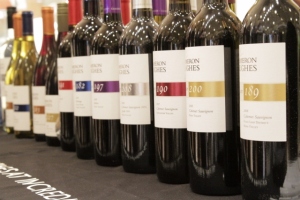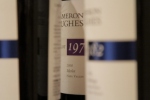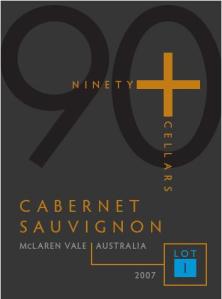 Those of you that read my blog know that Cameron Hughes wines are nothing new to me. For those of you unfamiliar with the Cameron Hughes label, do yourself a favor and read the recent Wall Street Journal article titled Taking advantage of the wine glut.
Those of you that read my blog know that Cameron Hughes wines are nothing new to me. For those of you unfamiliar with the Cameron Hughes label, do yourself a favor and read the recent Wall Street Journal article titled Taking advantage of the wine glut.
Cameron Hughes has undertaken an innovative business model, buying up the excess supply of high-end winery’s wine at a bargain basement price. The Cameron Hughes label is then slapped on the bottle and sold for a fraction of the price to retailers across the states. Hughes has taken advantage of the current over supply in California to build a reputation for quality, affordability, and entrepreneurial prowess. The 2008 Cameron Hughes Lot 200 Napa Valley Cabernet really takes his business model to the next level.
The fruit for this monster Napa Cab comes from three of Napa’s most prestigious sub appellations: Stag’s Leap, Rutherford and Oakville. On his website Cameron gives just a glimpse of who’s juice this maybe. He had to sign a 3 page Non-Disclosure Agreement which left very little left to say except that the people he acquired this wine from do not sell a bottle of wine for under $200 and have multiple 100 point scores under their belts. This wine was available for $27 on the Chwine.com website but sold out in a matter of weeks when Costco bought almost ALL of the 4,000 cases produced!
Another outstanding value is Lot 182 Atlas Peak Meritage. As the story goes there was a mix up in this deal and the labels had already been printed when Cameron discovered that this Meritage was actually 90% Cabernet and could have been sold as an Atlas Peak Cab, but c’est la vie! This wine was purchased in shiners and had been minding its own business in a cellar for 4 years before being released. It is drinking really well right now, and I use it as my go to “pop and pour” wine.
The Cameron Hughes production model has been able to thrive in a time when California wines have suffered, becoming less fashionable during the shaky economic climate of the past couple years. California 2009 retail wine sales were down about 3%. Have you tried any Cameron Hughes Wines or any American wine negociants?
More Reviews:










